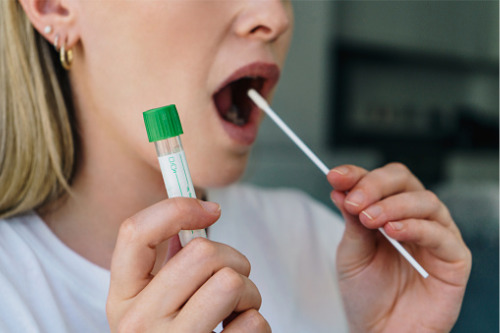Non-invasive collection method promises safe and effective alternative in fight against pandemic

Dynacare, an Ontario-based company that describes itself as Canada’s largest provider of medical insurance solutions, has announced a new biological sample collection method for testing to detect the virus that causes COVID-19.
As an alternative to the commonly used nasopharyngeal swabs (NPS) – which would have to be inserted into a patient’s nasal passage and therefore cause mild to moderate discomfort – Dynacare collaborated with various hospital partners to develop and assess a collection method that uses saliva from the test subject’s mouth.
With the new collection method, the company said patients are able to collect samples by themselves, eliminating the need for close contact with a healthcare worker. Consequently, it eliminates the need for personal protective equipment (PPE) used by healthcare workers in performing traditional NPS collection, and lowers the risk of exposure faced by patients.
“We’re extremely proud of the commitment, dedication and innovation demonstrated by the Dynacare team across Canada who have consistently demonstrated steadfast support of the healthcare system during the COVID-19 pandemic, most recently with the introduction of our saliva collection for PCR [polymerase chain reaction] testing method,” said Dynacare CEO Vito Ciciretto.
An instructional resource on NPS collection put out by the New England Journal of Medicine also notes that while there are no specific contraindications associated with the procedure, those doing it must be cautious in cases where a patient “has had recent nasal trauma or surgery, has a markedly deviated nasal septum, or has a history of chronically blocked nasal passages or severe coagulopathy.”
To validate its saliva-based collection method, Dynacare conducted a study of approximately 432 individuals. For each person, nasopharyngeal samples and saliva samples were collected at the same time, which were then tested. The study showed that the molecular saliva test performs similarly to a traditional NPS test in detecting whether someone has been infected with the novel coronavirus.
“[The new saliva collection method] is yet another testament to our commitment to innovation and to providing our stakeholders - including our customers, health care providers and the government - with creative solutions to the challenges they face,” Ciciretto said.



